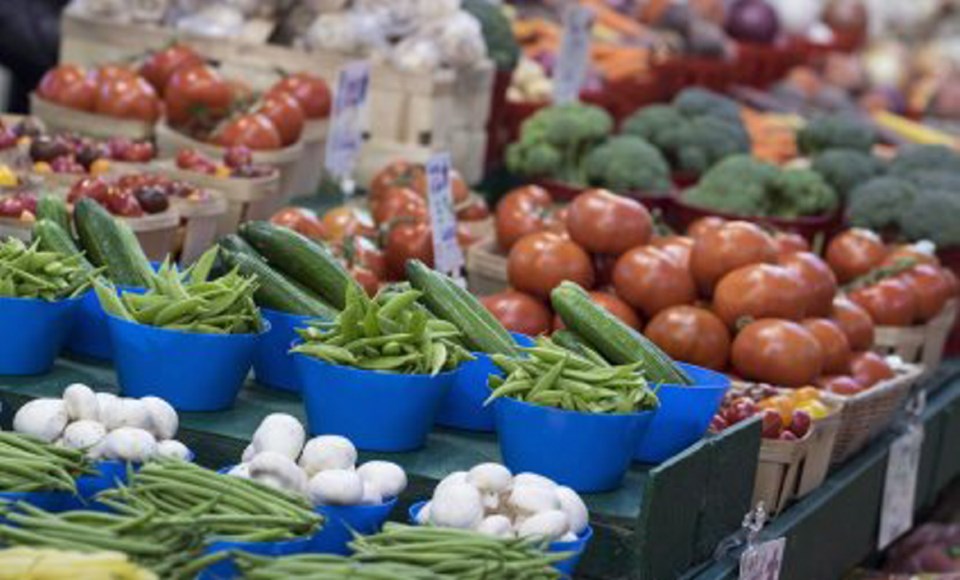TORONTO — With food prices expected to continue to rise through 2016, experts say there’s one way people can save money: waste less.
“We are throwing out huge amounts of food,” says Michael von Massow, a professor at the University of Guelph.
“We don’t like to think about it, we don’t like to admit it, but if we pay attention and think about it we can reduce that, which means we’d have to buy less and we wouldn’t be feeling these price increases as much.”
The university’s Food Institute predicted in a December report that Canadians can expect to spend an extra $345 on groceries this year, including up to 4.5 per cent more for fruits and vegetables.
When von Massow lectures on strategies to reduce food waste, he tells groups: “Many of us bring five bins or five bags of groceries home on a Saturday.
We might as well leave one of them at the curb because we’re going to carry it back there anyway.”
In a 2013 audit, researchers at the university found the average household in Guelph, Ont., was throwing out more than four kilograms of food a week and more than half of that was fresh fruits and vegetables. (About a third of the total was unavoidable, such as banana peels, cores and coffee grounds.)
“It’s interesting because while diversion from landfill is a great thing, we believe that people let themselves off the hook if it’s diverted to an organics program, that people may actually waste more food because they don’t think they’re wasting it — they’re composting it; they’re doing something environmentally sound,” says von Massow.
“They’re not thinking about the cost of what they’re throwing out. So we think in some cases food waste actually goes up when you have a really good organics program like we do in Guelph and they do in Toronto and York Region.”
Home economist and cookbook author Mairlyn Smith said her best tip to save money and reduce waste is to plan weekly menus, with leftovers in mind, and write a grocery list of the necessary ingredients. Then check to see what you have on hand.
That point was driven home to her a few years ago when, on a hummus kick, she got back from the store with a bottle of tahini only to discover she already had three in her pantry.
“What a waste of money. So that’s when I got the idea that we should really start shopping in our own house, our own pantry, our own fridge, our own freezer, and then we’re not overbuying stuff that you don’t need again.”
In fact, every February the Toronto-based Smith eats out of her freezer to use up items she’s stocked up on for developing recipes.
“February is a really entertaining month here because we eat a lot of weird stuff,” she said with a laugh.
She adds that consumers can reduce waste and costs by changing their thinking about portion sizes. She points out that people think nothing of eating an eight-ounce steak, but that’s actually considered almost enough to feed a family of four.
sa���ʴ�ý’s Food Guide suggests a serving size of protein is 75 grams (21⁄2 ounces) or 125 ml (1⁄2 cup).
Tips to reduce food waste
• Extend the life of fruits and vegetables by storing them properly.
“When you get home after shopping, do all your slicing and dicing and washing and chopping for the week,” advises registered dietitian Christy Brissette.
You’ll be more likely to use items for packed lunches and ease dinner preparation through the week if produce is ready to go.
Wash and spin lettuce dry, then wrap in a paper towel. Place in a plastic bag, leaving the top of the bag open slightly to let air circulate. Any moisture that develops, which could cause spoilage, will be absorbed by the paper towel.
• Fresh herbs are a great way to inject flavour into food while using less salt. If you think you won’t be able to use up all your fresh herbs, freeze portions in ice-cube trays or air-dry them and place in jars, says Brissette, who leads 80 Twenty Nutrition.
• Repurpose items, says von Massow. If an apple is not perfect any more, turn it into sauce or a crisp so it can still be eaten without the cost of throwing it out.



